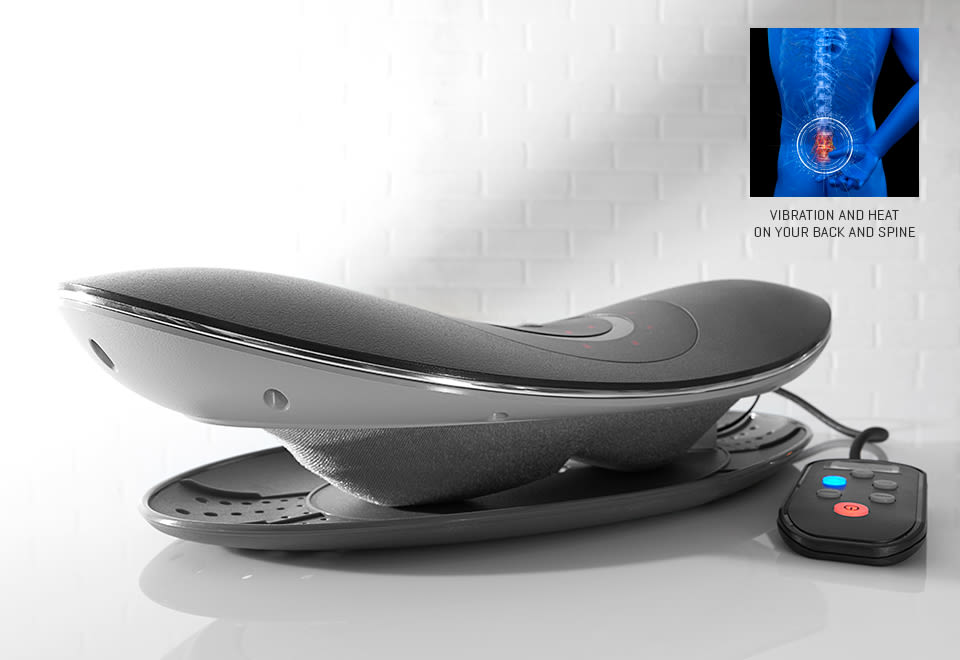All Categories
Featured
Table of Contents
Lower Back Pain Causes, Symptoms, Diagnosis As Simple As Laying Down.
They stimulate the nerves in the skin to provide feelings of warmth or cold in order to dull the sensation of pain. Your doctor has a wide range of treatments that may help your lower back pain. In general, expect your doctor to take a stepped care approach. That means starting with simple, low-cost treatments and moving to more aggressive approaches later.
PRP treatments use a small sample of your own blood that has concentrated amounts of blood building blocks known as platelets. Your doctor then injects the PRP directly into a damaged disc. The theory is that PRP injections use your own healing system to accelerate improvement of injured tendons, ligaments, muscles, and joints.
PRP needs a lot more research before it can be considered a proven technique. In this emerging treatment, your doctor injects stem cells harvested from your hip into the intervertebral disc or discs causing your pain. Doing so may lessen pain and the degenerative effects of aging, though, like PRP, more research is needed before stem cells for lower back pain could eventually become the standard of care.
Laminectomy is a surgery in which your surgeon removes the back portion of one or more vertebrae to create more space for the spinal cord or other nerves. In people with severe arthritis, bone spurs within the spinal canal can grow large enough to press on the spinal cord, causing pain and limiting mobility.
Taking Care Of Your Back At Home In 4 Minutes Or Less.
Most episodes of lower back pain eventually resolve on their own, but there are times when you should seek urgent medical attention. Some of these situations include: Patient is a child Accident, injury, other trauma Fever or nausea Weakness, numbness and/or tingling sensations develop in the legs and/or feet Pain is severe, constant, suddenly or progressively worsens, and/or doesn’t go away Pain interrupts sleep While some situations may warrant immediate intervention, most cases are not urgent and can be scheduled at a time convenient for the patient.

The more you weigh, the more pressure you have on your lumbar vertebrae. Being overweight or obese can put stress on the back and lead to lower back pain. Be sure to squat while lifting so that your hips and knees do much of the work. Keep the load close to your chest while you lift.
There are also some specialist treatments that may be recommended if it's thought simple measures are not likely to be effective on their own. See a GP or a physiotherapist if your pain is not improving despite trying simple treatments. Treatments you can try yourself Stay active, One of the most important things you can do is to keep moving and continue with your normal activities as much as possible.
These can be done at home as often as you need to. For information about exercises and stretches that can help, see:A GP may be able to provide information about back exercises if you're unsure what to try, or you may want to consider seeing a physiotherapist for advice. Read about how to get access to physiotherapy.
Lower Back Pain Causes, Symptoms, Diagnosis In As Little 10 Minutes Or Less.
This is a stronger painkiller that should ideally only be used for a few days, as it can cause addiction if used for longer.Paracetamol on its own is not recommended for back pain, but it may be used alongside stronger painkillers such as codeine. Muscle relaxants may be prescribed by a GP if you have painful muscle spasms in your back.
Do not drive, cycle or operate machinery if you have these types of side effects. Hot and cold packs, Some people find that heat (such as a hot bath or a hot water bottle placed on the affected area) helps to ease the pain when back pain first starts. Cold (such as an ice pack or a bag of frozen vegetables) on the painful area can also help in the short term.
It's usually done by chiropractors, osteopaths or physiotherapists, although chiropractic and osteopathy are not widely available on the NHS.Manual therapy can help reduce back pain, but it should only be used alongside other measures such as exercise. There's also some evidence that a therapy called the Alexander technique may help with long-term back pain.

Surgery and procedures Surgery for back pain is usually only recommended if there's a specific medical reason for your pain, such as sciatica or a slipped (prolapsed) disc, and other treatments have not helped. Nerve treatment, A procedure called radiofrequency denervation may sometimes be used if:you've had back pain for a long timeyour pain is moderate or severeyour pain is thought to originate from the joints in your spine, The procedure involves inserting needles into the nerves that supply the affected joints.
Table of Contents
Latest Posts
Ways To Treat Chronic Back Pain Without Surgery, As Simple As Laying Down.
Lower Back Pain Causes, Symptoms, Diagnosis In 3 Minutes Or Less.
Back Pain - Treatment That Stops The Pain From The Comfort Of Your Own Home.
More
Latest Posts
Ways To Treat Chronic Back Pain Without Surgery, As Simple As Laying Down.
Lower Back Pain Causes, Symptoms, Diagnosis In 3 Minutes Or Less.
Back Pain - Treatment That Stops The Pain From The Comfort Of Your Own Home.